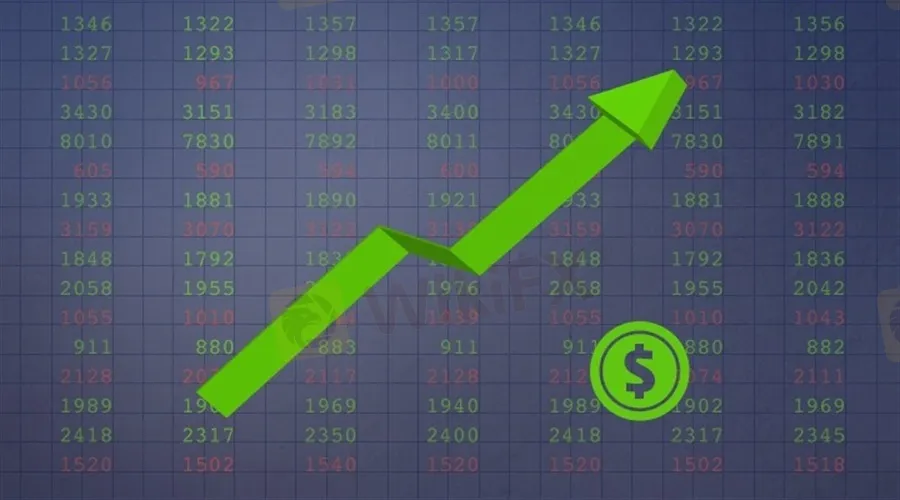简体中文
繁體中文
English
Pусский
日本語
ภาษาไทย
Tiếng Việt
Bahasa Indonesia
Español
हिन्दी
Filippiiniläinen
Français
Deutsch
Português
Türkçe
한국어
العربية
ISX Financial Witnesses a 4.1% Increase in Its Revenue for 2021
Abstract:The company's net assets increased by €11.4 million. Revenue from customers grew 4% during the period.

ISX Financial EU Plc released its Annual Report and audited results for 2021 on Tuesday. According to the report, revenue for the Group increased 4.1% to €22.7 million as the company focused on diversifying its revenue away from card acquiring and toward lower-cost SEPA instant and batch interbank payments .
Take Advantage of the Biggest Financial Event in London. This year we have expanded to new verticals in Online Trading, Fintech, Digital Assets, Blockchain, and Payments.
During the year ended December 31, 2021, expenses and other charges increased by 12% or €2.2 million to €20.4 million, primarily due to an impairment charge of €1.1 million on the Group's investment in NSX Limited and additional costs to support revenue growth.
Additional employees were hired to manage current and future customer growth, which increased employee benefits and expenses by €1.4 million. As ISX Financial EU continued to invest in its key software assets, depreciation and amortization expenses increased by €0.8 million.
For the period, ISX Financial EUs net assets increased by €11.4 million to €7.5 million, primarily due to an increase of €5.1 million in share capital (related to the demerger from Southern Cross Payments Ltd) and equity contribution of €5.2 million, plus a profit of €1.3 million.
During the period, the Group's financial position remained strong, with cash and cash equivalents of €5.0 million at the end of the period. There was €6.1 million in operating cash flows generated during the period, offset by €2.8 million in investing activities, largely related to software development, and €6.7 million in financing activities, mainly related to dividends and debt repayments to Southern Cross Payments Ltd.
Main Risks
“As part of its business activities, the Group faces a variety of risks, to which the Group has developed methods to manage and monitor these risks together with mitigation strategies, including by way of policy, procedures, controls and technology. The key risks the Group faces are outlined below. In addition, key risks facing the Group also include operational risk which also includes compliance , legal and reputational risk, regulatory risk, information security and cyber risk, digital transformation and technology risk as well as business model and strategic risk,” the company noted.

Disclaimer:
The views in this article only represent the author's personal views, and do not constitute investment advice on this platform. This platform does not guarantee the accuracy, completeness and timeliness of the information in the article, and will not be liable for any loss caused by the use of or reliance on the information in the article.
Read more

The Ultimate Guide to Automated Forex Trading in 2025
Modern markets are revolutionized by automated trading systems, which now execute 70-85% of all transactions. These advanced automated trading software solutions, commonly called trading robots or Expert Advisors (EAs), leverage algorithmic precision for automatic trading across forex, stocks, and commodities 24/7. By removing emotional interference and executing trades in microseconds, auto forex trading platforms create fair opportunities for all market participants. For those new to automated trading for beginners, these systems provide disciplined, backtested strategies while significantly reducing manual effort.

Will natural disasters have an impact on the forex market?
The forex market is known for its rapid responses to global events, but the influence of natural disasters, such as earthquakes and typhoons, can be less straightforward. While headlines may scream about catastrophic damage and economic disruption, the long-term effects on currency values often depend on a blend of immediate shock and underlying economic fundamentals.

Philippines Deports 29 Indonesians Linked to Online Scam Syndicate in Manila
Online scam groups in the Philippines trick Filipinos into gambling and love scams, from Manila to Bacolod, causing trafficking and pain as police fight back.

Why does your mood hinder you from getting the maximum return from an investment?
Investment decisions are rarely made in a vacuum. Aside from the objective data and market trends, our emotions—and our overall mood—play a crucial role in shaping our financial outcomes. Whether you’re feeling overconfident after a win or anxious after a loss, these emotional states can skew your decision-making process, ultimately affecting your investment returns.
WikiFX Broker
Latest News
How Crypto Trading Transforms FX and CFD Brokerage Industry
UK would not hesitate to retaliate against US tariffs - No 10 sources
FCA Warns Against 10 Unlicensed or Clone Firms
CySEC Warns Against 14 Unlicensed Investment Websites
Top Currency Pairs to Watch for Profit This Week - March 31, 2025
Will natural disasters have an impact on the forex market?
Philippines Deports 29 Indonesians Linked to Online Scam Syndicate in Manila
Navigating the Intersection of Forex Markets, AI Technology, and Fintech
Exposed: Deceptive World of Fake Trading Gurus – Don’t Get Fooled!
AI-Powered Strategies to Improve Profits in Forex Trading
Currency Calculator







